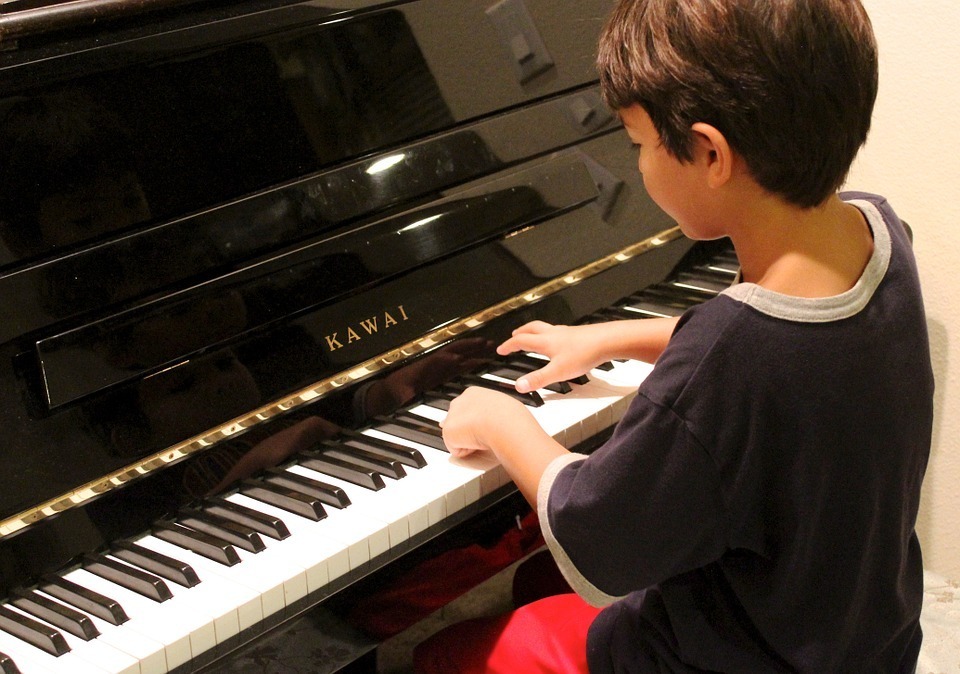For you to have successful music lesson programs, specific stars need to align. These rely on the amount of effort and sacrifices you make. Hence you need adequate information to guide you and your young ones through the process.
What can you do today that will be a recipe for your success in music lessons? What can young adults do in music studies to set them up for success? A popular music lesson academy notes these pointers as guidelines for having a significant and satisfying adventure while pursuing music.
Begin at a Suitable Age
Learning age depends on your potential, passion, and instrument of choice. There is no age cap since learning music is a natural process that can begin at any age. On the contrary, introducing your child too early can be frustrating because instruments like the guitar require more finger dexterity, unlike the piano.
Consequently, it is worthwhile waiting until your child can enjoy and appreciate the experience at the right age. This way, they can learn faster while specializing in specific musical instruments.
Here is a guideline to be used for when learners should begin music lesson programs.
Ages 1-5
Children between the ages of 1-5 can learn music by playing and interacting with their age mates in group settings. As soon as this basis is formed, they can sign up for music lessons.
Above 6 Years of Age
Keyboard Classes
When children hit age 6, they become keener, with a longer attention span, and have a better memory. Thus, it is a suitable age to introduce them to piano lessons.
Bass, Electric and Acoustic Guitar
The earliest we can advise for guitar is eight years because a reasonable amount of fingertip pressure on the strings is needed to play the guitar. However, most children under eight years of age have tiny fingers and may find it difficult to assert the required pressure. Further, we suggest that they should be introduced to the bass guitar at age ten as it is more extensive.
Voice Coaching
Well-rounded vocal cords, good lung capacity, and correct breathing techniques are required for successful voice lessons. Unfortunately, most children below ten years of age are not yet physically developed for extreme voice coaching.
Violin Classes
Violin deviates from all these standard norms and can be learned as early as six years.
Clarinet and Flute Lessons
To learn woodwind instruments, you need a good lung capacity to hold notes. As such, it’s recommended for children of 9 years onwards.
Drum Classes
Drums rely on the learner’s ability to reach the cymbals and pedals, dependent on their size. The recommended age is eight.
Adults
It all depends on your commitment to learning an instrument for adults as it’s possible at any age.
Get Private Classes Once You Specialize in an Instrument
Private lessons ensure that the learner gets undivided attention from the teacher. The teacher is then able to map out the student’s strengths and shortcomings. With that in mind, an instructor can develop a custom learning pace, style, and advancement that befit the learner’s needs and abilities.
Simplify Your Practice Methods
If you want to advance your skills in playing instruments or singing, then practice is crucial. Set up your schedule in a way that you’ll have adequate time for practice within your everyday routine. For children, doing this earlier in the day is effective before they take on other activities.
On top of that, repetition works well for children because of their low attention span. Have them practice 3-4 times a day. This method makes them pay attention to the number of times they have to play an instrument in a day rather than the duration they spend playing it. Intermediate and advanced learners also get better with repetition.
Aside from that, create learning incentives for you or your child. Reward systems push you or your youngsters towards intended aspirations. For instance, you can reward children by getting them personalized music instruments when they do well.
Learn From a Professional Setting
A professional environment is distraction-free and has access to instruments and qualified instructors. Simultaneously, students get to hear music from their classmates, motivating them to learn, practice, and advance. Thus, lessons in professional teaching environments are passion-driven and dedicated to learning and achieving goals.
Make Use of Recognized Learning Resources
Professional music instructors develop numerous learning resources for learners of different ages and levels. For example, instrument playing materials meant for adults as well as resources designed specifically for young learners.
Ensure that all your training materials are from qualified instructors and admissible in institutions within the United States. The instructors should be able to transition from where your previous teacher stopped seamlessly.
Have Fun
We make music so we can enjoy it. Learning it should equally be fulfilling and satisfying to you as a learner or your enthusiastic young ones. Take your time and be sure not to impose any unrealistic expectations on either you or your child.

